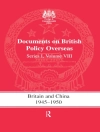Parties are the major actors of political representation in democracies. They have been acknowledged repeatedly as the critical link between voters, representatives and guarantors of democratic governance. Without them, a democracy can hardly be said to exist because they are the principal links between government and society. However, parties can lose their representative capacity, and be challenged by disaffected electorates that pursue other alternatives for political involvement. This book focuses upon the electoral weakening of Latin America’s traditional parties. These parties dominated the political arena in the region during the last decades of the twentieth century. They played a significant role in the legitimation of democratic politics in particular when countries transited from authoritarian regimes in the late 1950s (Colombia and Venezuela) and later on, in the late 1970s (e.g., Ecuador) and 1980s (e.g., Argentina, Uruguay, Chile). Latin American traditional parties structured post-authoritarian political and party systems; they defined the rules of the democratic game (i.e., electoral systems); they became consolidated as the principal agents of political representation and were the main actors in policy-making processes. However, by the beginning of the 21st century (2000-2005) many of them faded, and political outsiders with antiestablishment discourses as well as new parties and political movements flourished.
Mục lục
Table of Contents
List of Tables · xi
List of Figures · xiii
Preface · xv
Acknowledgments · xix
Introduction · 1
Latin American Traditional Parties · 8
Case Studies · 23
Plan of the Book · 27
Chapter One
Determinants of Parties’ Electoral Performance:
Traditional Explanations Reconsidered · 29
Economic Conditions · 29
Political Context: the Impact of Scandals
and Institutional Settings · 37
Conclusion · 45
Chapter Two
The Internal Organization of Latin American Parties · 47
Organization of Parties and Their Adaptive Capacity · 48
Institutionalization and Internal Structure of Parties · 51
Intraparty Conflict and Ideological Adaptation · 55
Ideological and Programmatic Coherence · 57
An Alternative Argument: the Effect of Parties’ Internal
Features on Their Electoral Trajectories · 59
The Internal Organization of Parties · 60
viii latin american traditional parties, 1978-2006
Operationalization of the Internal Characteristics
of Parties · 70
Conclusion · 77
Chapter Three
Case Studies: Traditional Parties in Colombia and Venezuela · 79
The Origins and Early Trajectories of Traditional Parties · 81
The Origins of Traditional Parties · 81
Political Pacts in Colombia and Venezuela and the
Consolidation of ‘New’ Party Systems · 84
Economic and Political Crises · 92
Colombia · 92
Venezuela · 95
Electoral Systems and Institutional Engineering · 97
Colombia · 97
Venezuela · 108
Internal Structure of Traditional Parties · 113
The Liberal Party (PL) · 113
The Conservative Party (PC) · 116
Democratic Action (AD) · 120
Social Christian Party (COPEI) · 124
Recapitulating · 128
Conclusion · 130
Chapter Four
The Effects of Parties Internal Organization on Their
Electoral Performance, 1978-2006 · 133
Data · 134
Dependent and Independent Variables · 137
Analysis · 141
The Effects of Parties’ Internal Characteristics · 144
The Effects of Contextual and Institutional Variables
on Parties’ Electoral Performance · 151
Conclusion · 156
Conclusion · 157












